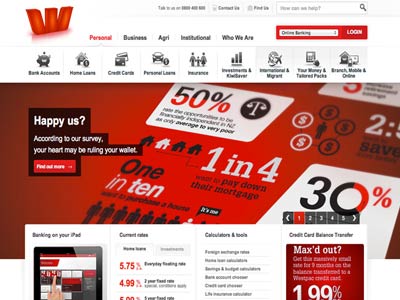
Credit cards in New Zealand
Find and compare New Zealand’s top credit cards and enjoy quick access to cash and elite benefits.
View Credit card Offers
Find and compare New Zealand’s top credit cards and enjoy quick access to cash and elite benefits.
View Credit card Offers
Credit cards are among the most versatile financial tools we have at our disposal.
In order to ensure your credit card meets and exceeds your needs, you need to compare credit cards and find the best options.
It’s tough to avoid credit in a world where life has become so expensive and our desires and dreams don’t quieten at the same time. It’s no secret that many New Zealanders have some form of credit that they rely on to facilitate the financial needs of the household.
Credit cards and personal loans are among the most popular lines of credit due to the ease of use when needing to pay for things. It’s a simple swipe or taps these days.
But with convenience comes to cost, and credit cards have an interest rate that you should be aware of since it’s often higher than other credit types. Not repaying your credit card outstanding amount in full each month will lead to a repayment that might end up costing you more in the long run if you aren’t careful. There are ways and means to manage your credit card to effectively have access to convenient credit without it hurting your financial situation. It’s important that whenever you are using credit, that you make it work for you and not against you.
You have two options based on the term you choose. There is either a short to midterm credit card option which covers most of your unsecured loans and credit lines such as personal loans, credit cards, overdrafts, store cards, and other.
The other is a long-term credit, which encompasses loans for homes, home equity and debt consolidation. The repayment term is longer due to the nature of these loans being a large amount borrowed. They are generally secured by an asset, being the house of the borrower.
Credit cards fall into the category of short-term credit and are unsecured, meaning you won’t have to offer any collateral to apply for a credit card. The lender you choose approves the credit card and the credit limit based on your income.
A credit card functions similarly to an overdraft, but are more affordable. There is a limit that you can spend up to and you are able to repay each month in full without incurring any interest if you do so in the set interest-free period. You are able to repay only the minimum required amount in the event that you cannot repay it in full, which is one of the convenient offerings of a credit card, where you can spend now and pay later!
For all your small to medium purchases a credit card is ideal and acts like an instant cash loan! However, if you plan to make a big purchase on your credit card, make sure that you can afford the repayments each month. This is vital to keep with avoiding landing yourself in debt.
Credit card interest in New Zealand can range from 12% to more than 20%. The cards that come with low-interest rates usually charge you a higher annual fee, so look out for that. If you are one that won’t be paying off your card every month, then it’s worthwhile opting for the card with the lowest interest rate.
If you’re struggling to get the balance down to zero, then look into balance transfers. This is a special offer that allows you to transfer an existing balance from your card to a new one with a different lender, at a much lower interest rate. You’ll find that most credit cards offer interest-free days, so, try and make use of this every opportunity that you can so that you can save. Interest-free days range from 0 to 180.
There is a large variety of credit cards when it comes to shopping for one in New Zealand. The best way to choose one is to compare all that is available against each other. Make sure you find one with a low interest rate, low fees, and a long repayment term. Take care to have your credit score in good standing when you apply, since this will also secure a lower interest rate. Carefully peruse any agreements before you sign.
Don’t treat your credit card as a debt repayment tool. You’re on a quick path to landing yourself in further debt if you do this. Use your card for affordable repayable purchases.
Avoid luxury item shopping, if you can’t afford it cash, then you can’t really afford it. If you need to purchase something that costs more than you can afford, but it is an essential item, for example, your washing machine packed up and you need to replace it, then ensure that you shop for the model that you can afford to comfortably repay.
You will be offered higher credit limits, but beware, first check whether there are additional charges to the limit increase and also only take it if your earning bracket allows you to, not simply because you wish to spend more!
Be careful when transferring your salary to your credit card, its’ best to rather transfer it to an interest-bearing account, since it won’t come with charges as it does with the credit card transfer.
Avoid high fixed expenses such as tuition fees. There are student loans designed for tuition and are far more affordable due to the lower interest rate and the longer repayment term.
Take advantage of the interest-free days. If you’re struggling to manage that payment in full, then at least try to pay a little more than the minimum repayment to save on interest.
A bank will charge you a lot more for withdrawing cash on a credit card. Avoid at all costs, ever putting your credit card into an ATM to draw cash.
Try leaving your card at home if you can help it. That way you’ll go and fetch the card for that one specific necessary item that’s required, and avoid frivolous spending altogether simply because it’s in your wallet.
If you’ve landed yourself in any trouble with your credit card or debt in general, consult your bank and they’ll assist you in resolving your financial issue as best they can. This can be done through a debt consolidation loan or even debt review in more serious cases.














